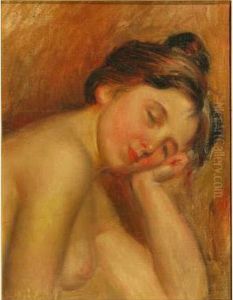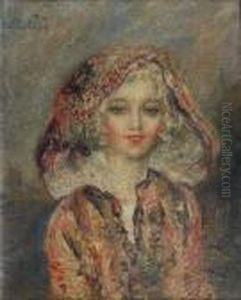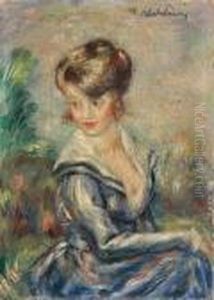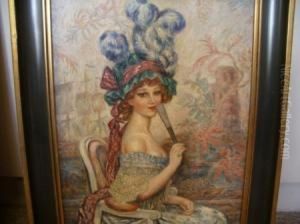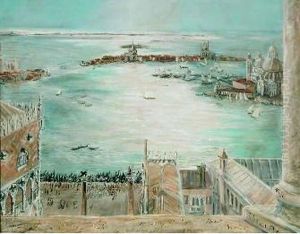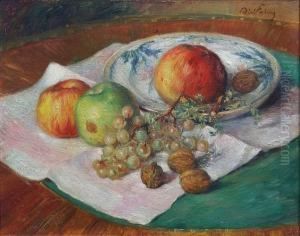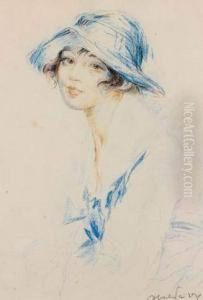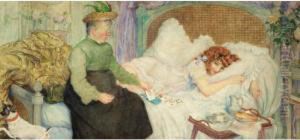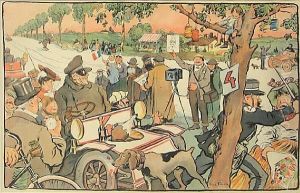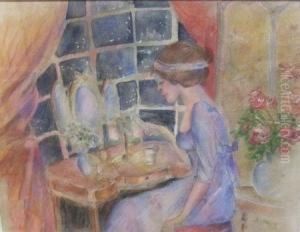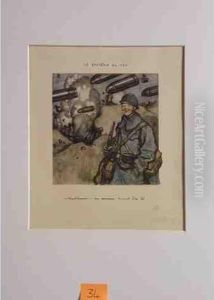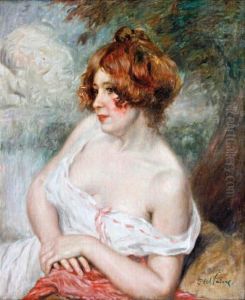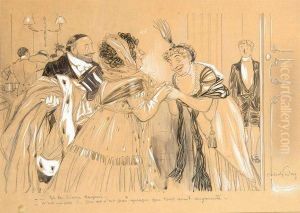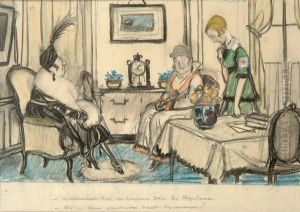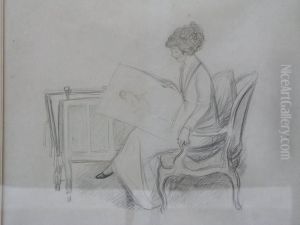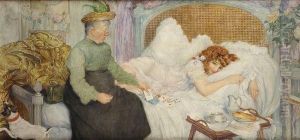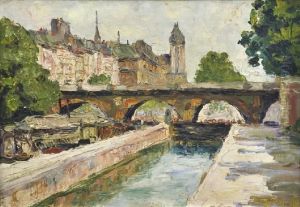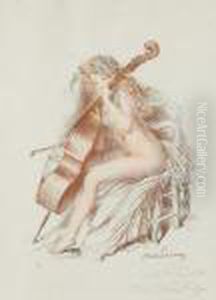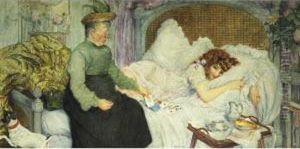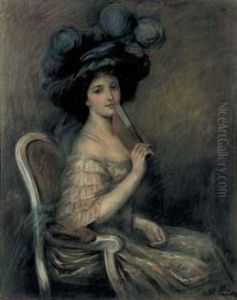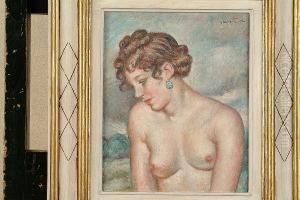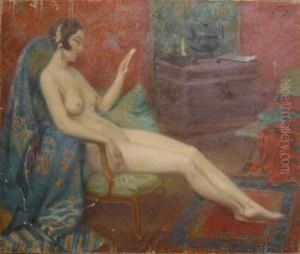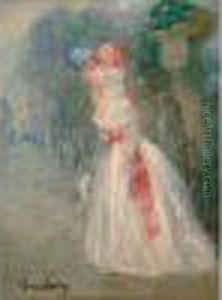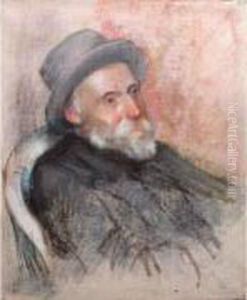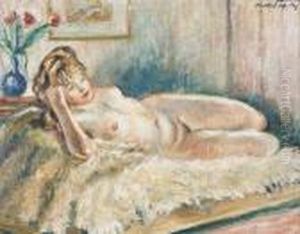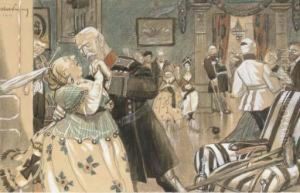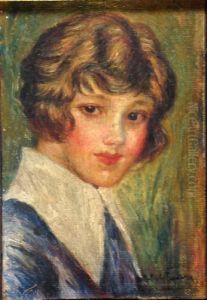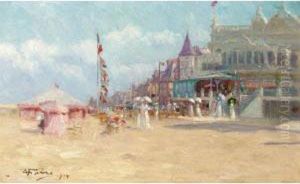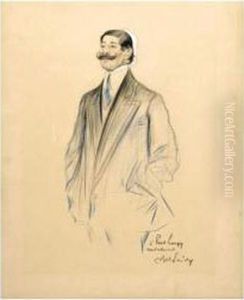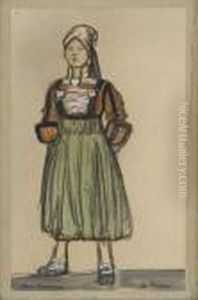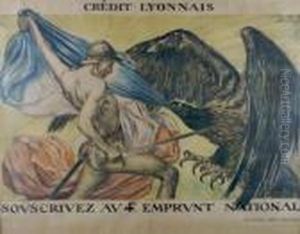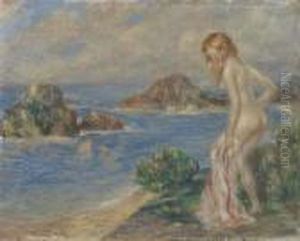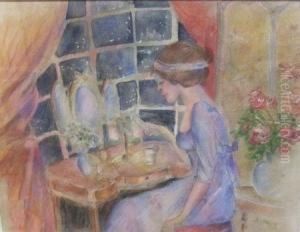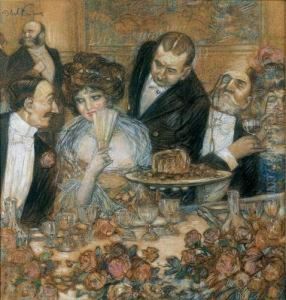Abel Jules Faivre Paintings
Abel Jules Faivre was a prominent French painter and illustrator born on March 30, 1867, in Lyon, France. He is particularly known for his work as a poster artist and his contributions to the illustration of magazines and advertisements during the late 19th and early 20th centuries.
Faivre received his primary art education at the École nationale supérieure des Beaux-Arts de Lyon before moving to Paris, where he continued his studies at the École des Beaux-Arts under the tutelage of Jean-Léon Gérôme, a renowned painter of his time. Faivre quickly established himself as a talented artist and became known for his ability to capture the spirit of his era with a humorous and often satirical touch.
His career took a significant turn when he began to work for the famous French magazine 'Le Rire' in 1899, where his illustrations gained him widespread recognition. Faivre's work is characterized by its vibrant colors, clear lines, and the inclusion of social and political commentary. He also created posters for various clients, including the French government during World War I, where his patriotic posters served to boost morale and support the war effort.
In addition to his poster art, Faivre was also a successful portrait painter, capturing the likenesses of many notable figures of his time. His work was exhibited in various Salons and galleries throughout Europe, and he received several awards and honors for his artistic contributions.
Abel Jules Faivre's career spanned a period of great change in the art world, from the Belle Époque through to World War I and into the interwar period. His work reflects the dynamic and often tumultuous spirit of these times, as well as the evolution of graphic design and illustration techniques.
He passed away on August 13, 1945, in Nice, leaving behind a significant body of work that continues to be celebrated for its historical importance and artistic merit. Faivre's illustrations and posters remain an integral part of the study of French art and visual culture of the early 20th century.
